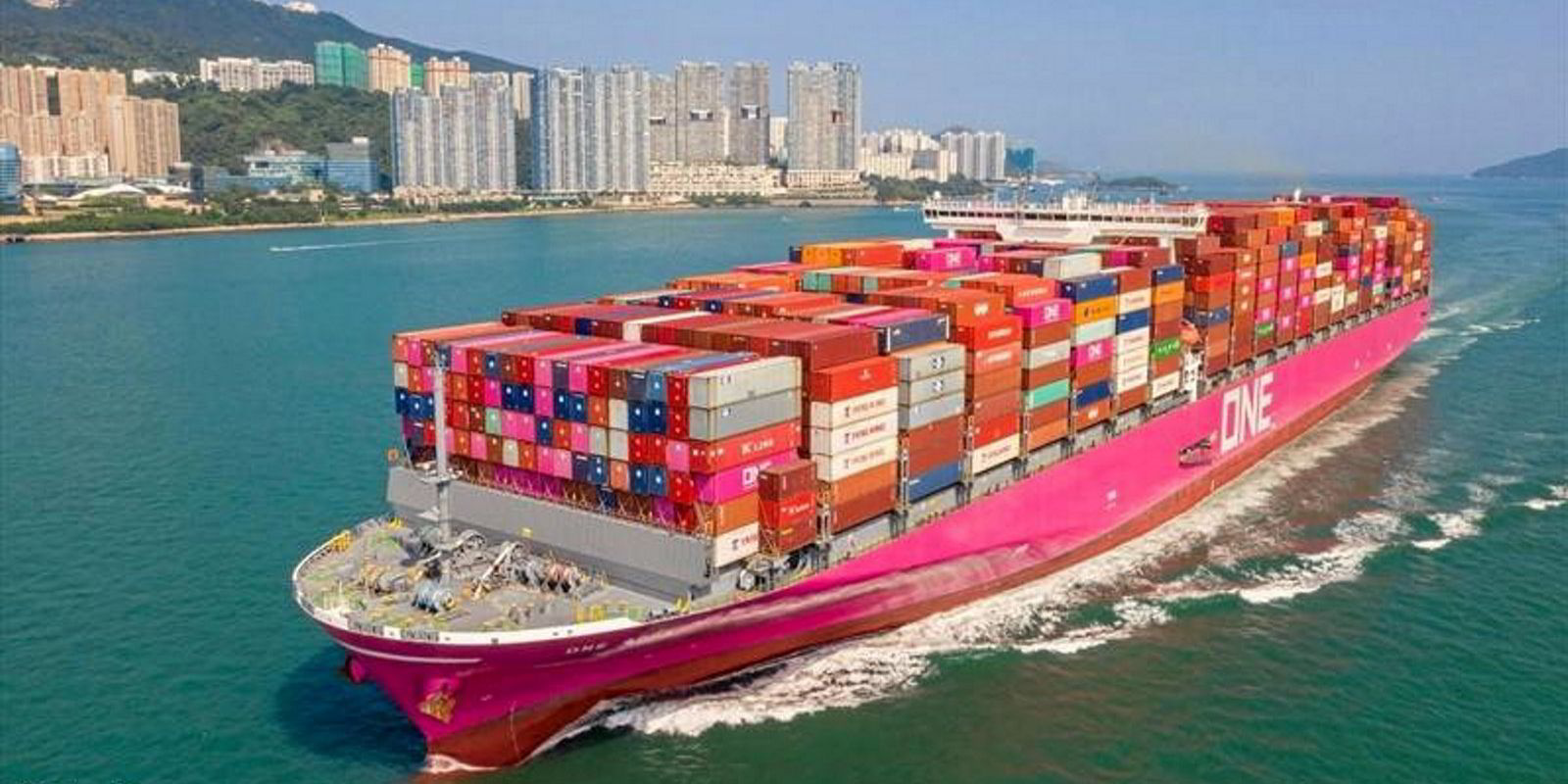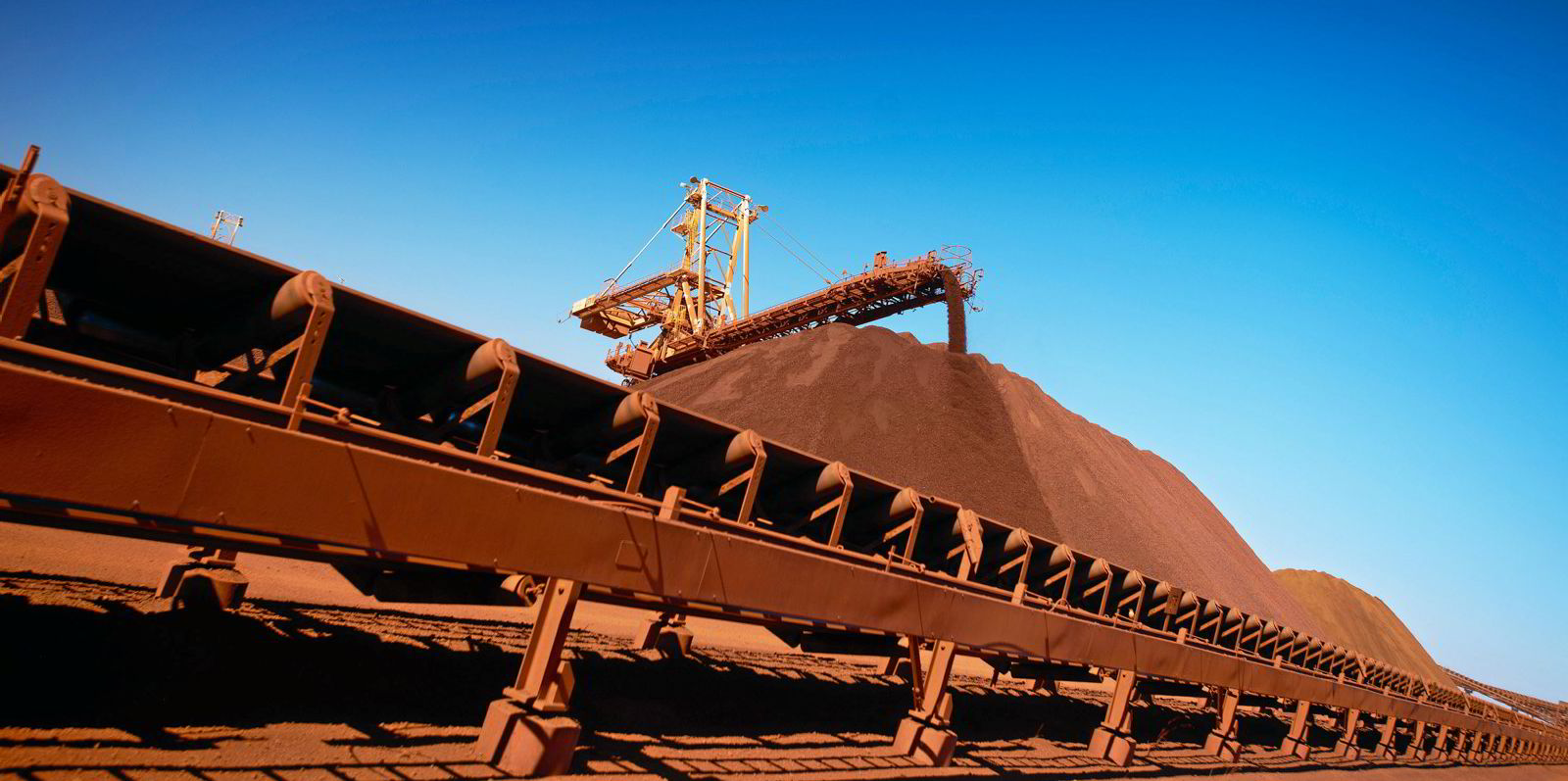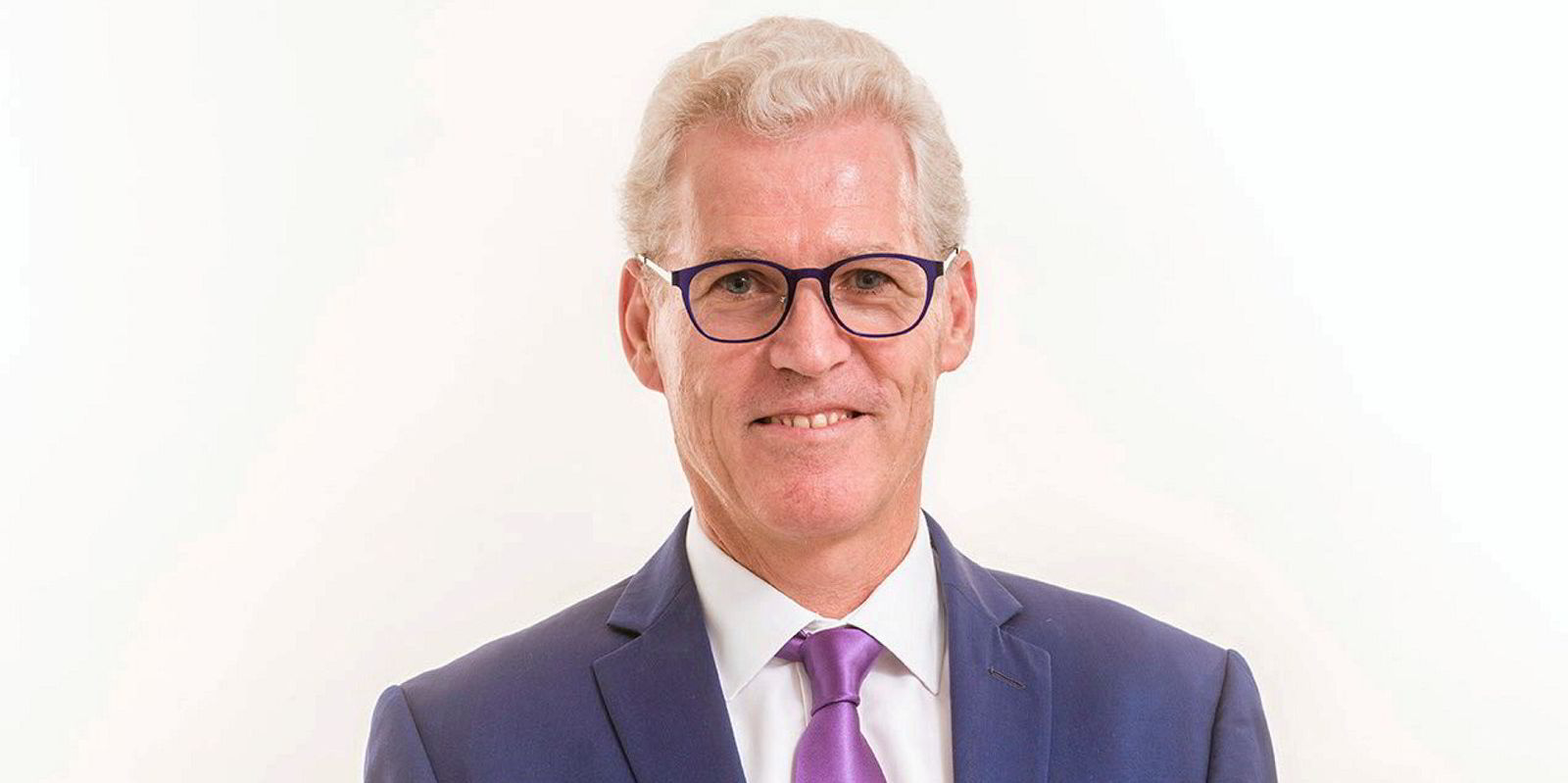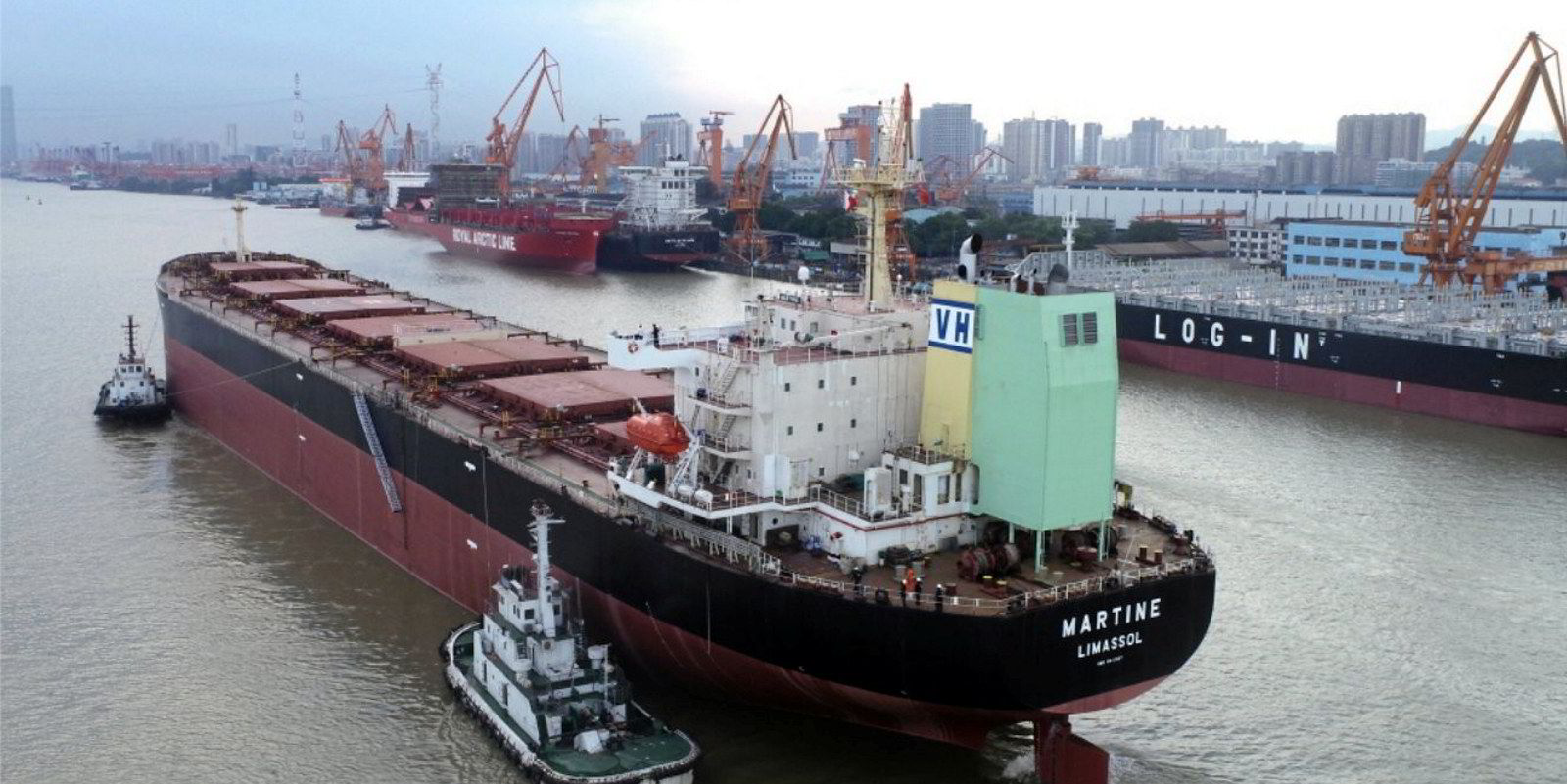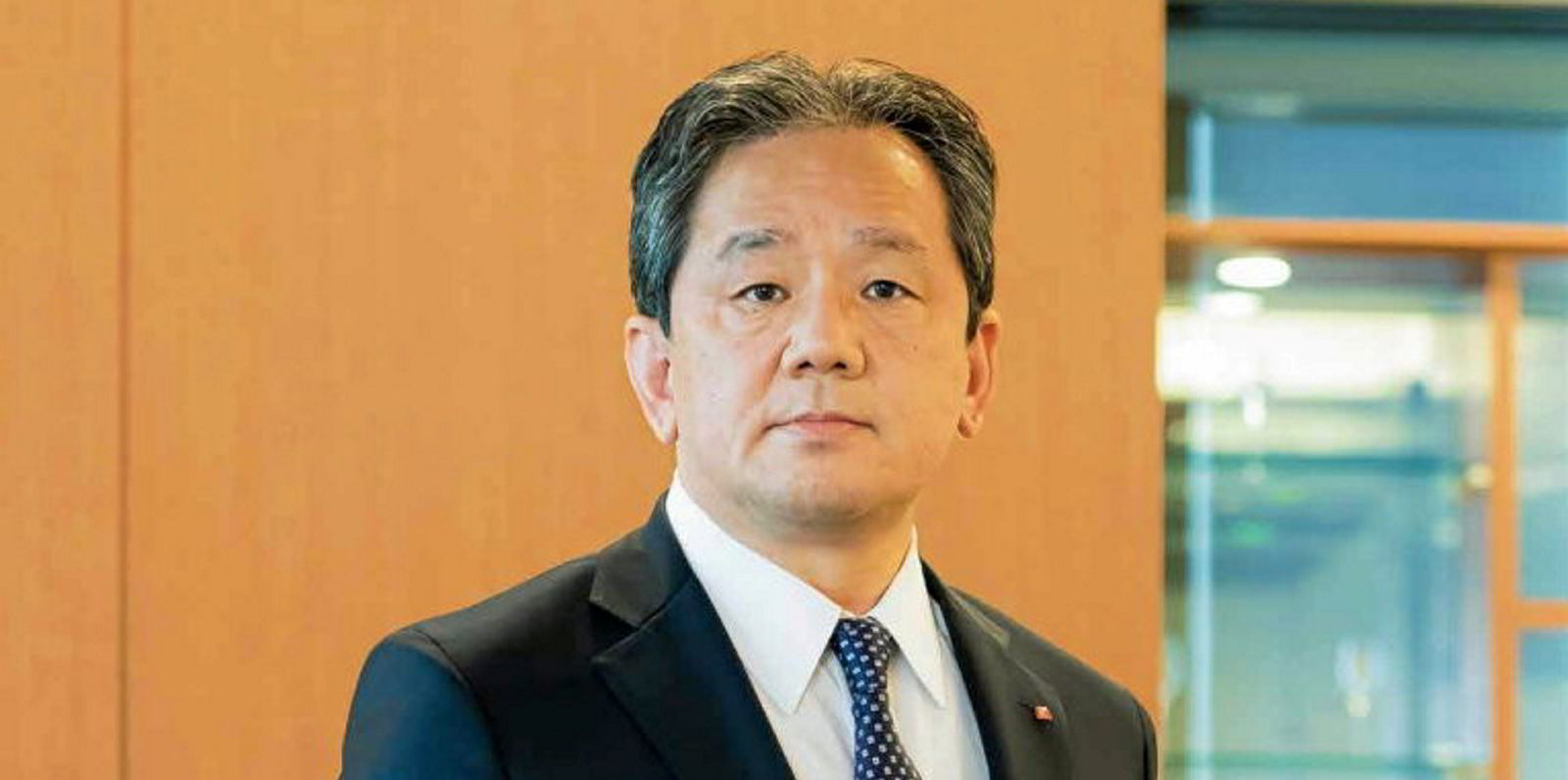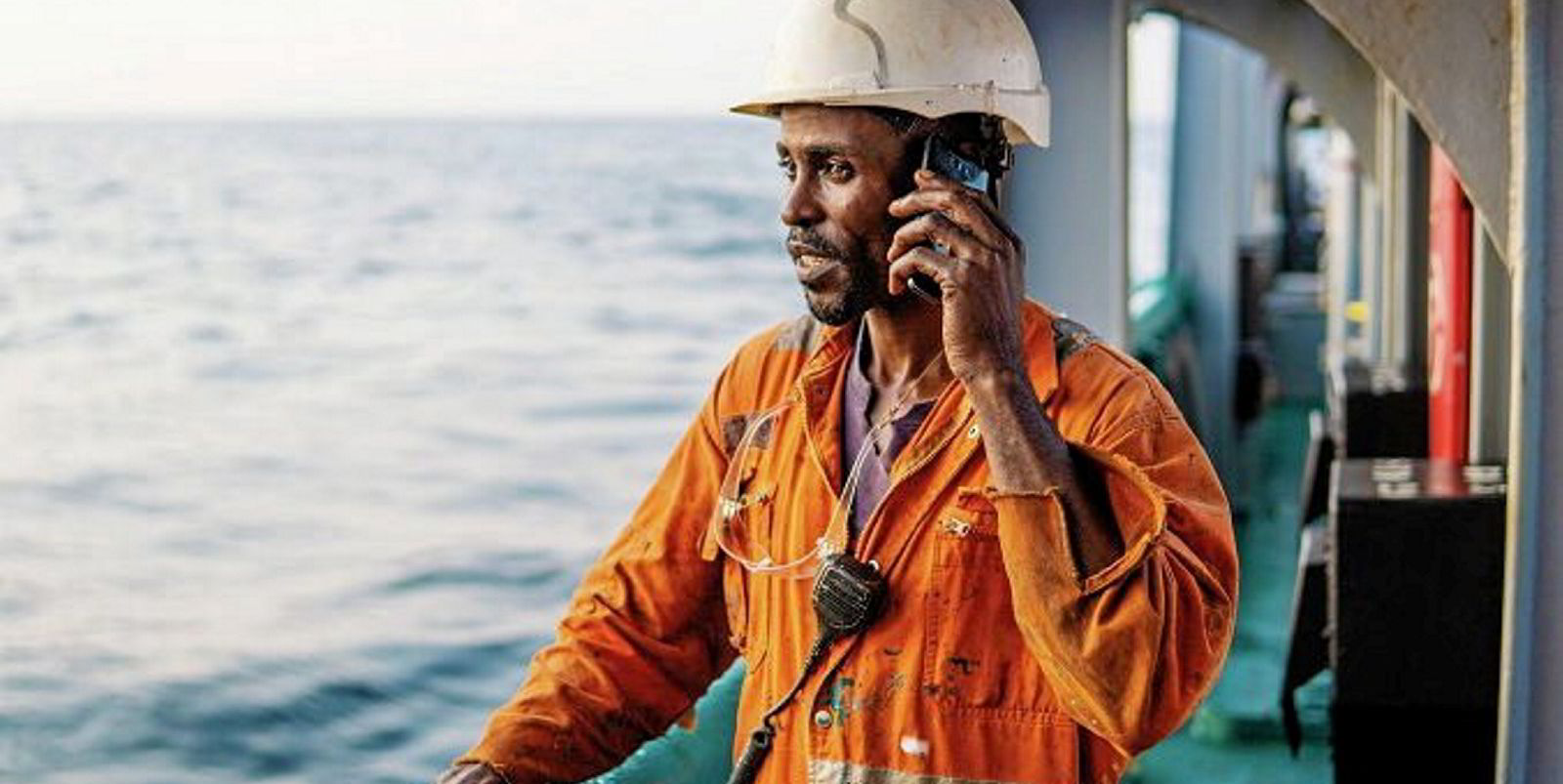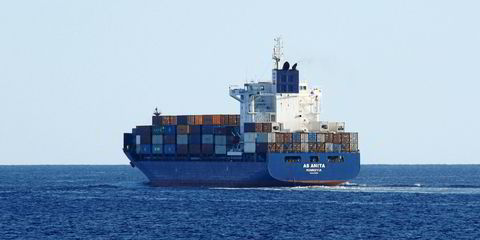Annual profit for Japanese shipowning giant Mitsui OSK Lines more than doubled last year and topped $1bn, thanks to incredible earnings from its containerships.
Profit for the 12-month period ended 31 March totalled ¥133.6bn ($1.2bn), up from its previous annual result of ¥78.5bn.
This came despite annual revenue shrinking by 14% year on year to ¥991.4bn.
In its non-operating income, MOL recorded ¥132.9bn of equity in net earnings of affiliated companies, 90% of which was contributed by container carrier Ocean Network Express (ONE), in which MOL is a partner.
MOL recognised ¥67.4bn in equity from ONE's net earnings during the fourth quarter alone.
Cargo movements for ONE's containerships remained at a high level from the summer onwards, which MOL said this was driven by "stay-at-home demand, especially on Asia-North America routes".
Spot rates were driven up by supply constraints, which arose due to port congestion related to labour shortages and an insufficient number of containers in Asia.
MOL's reduced its exposure to shipping by divesting 17 vessels last year, most of which were car carriers that were scrapped, re-delivered or else idled after the Covid-19 pandemic hit demand for automobile transport.
Its dry-cargo division was also hit hard by the pandemic in 2020 and logged a ¥4.2bn loss for the year, down by 135% compared to the 2019 fiscal year.
MOL said its subsidiary MOL Bridge Finance has recorded a provision of allowance for doubtful accounts for loans provided to affiliate company Gearbulk Holding, the world's largest operator of open-hatch gantry crane and jib crane vessels, most of which are bulkers.
"As a result, the dry bulk business as a whole posted a significant decline in profit compared with the same period of the previous year," MOL said in its annual report.
New dry venture
April saw MOL begin operation of its new dry venture, MOL Drybulk, which merges its previous two dry-cargo businesses.
The freshly established subsidiary operates small and mid-sized bulkers, woodchip carriers and short-sea ships of between 10,000 dwt to 100,000 dwt, excluding those serving steel manufacturer and electric power companies.
Headed up by Kazuhiko Kikuchi, the new venture has a "one-stop sales structure" and has been launched to cut operating costs and "increase the value of services provided to customers," according to MOL's 2020 financial report.
The group said it saw some recovery in transportation demand for paper raw materials and pulp bound for China during 2020, but said overall bulker demand and market conditions were "weak" last year.
Outlook for 2021
MOL expects that the strong container market will continue to shore up its financial results in 2021.
It forecasts annual profit of ¥100bn this fiscal year, of which ¥55bn will be contributed by its product transport division, which looks after its containerships, car carriers, terminal and logistics business, ferries and coastal ro-ro vessels.
Its dry-cargo business, comprising MOL Drybulk and its nine iron-ore carriers, is forecast to post profit of ¥13bn this year.
MOL said it plans to invest approximately ¥200bn by 2023 in lowering its carbon emissions and, as part of this, will expand its "low environmental impact" and "low-carbon" businesses.
It plans to deploy its LNG carriers, floating storage and regasification units (FSRUs) and powerships to handle increasing global demand for LNG and intends to enter the offshore wind business, according to its annual presentation to investors.
Mauritius relief
MOL's year-end report also sheds more light on the relief that the company and the Japanese government will provide to Mauritius, following the disastrous fuel-oil spill caused by the 207,000-dwt bulk carrier Wakashio (built 2007) last year.
Overall, around ¥800m will be contributed by the Japan Foundation, a charitable trust, and Mauritius Foundation, a new relief fund being led by MOL.
The Mauritius Foundation is to scheduled to be established in May and will start the relief funding right away.
The Japan Foundation is still in the process of being established and authorities are processing its application.
MOL Mauritius, the group's subsidiary, will also provide "various support activities" to local communities, according to the report.
The Wakashio spilled more than 1,000 tonnes of fuel oil following its grounding on the eastern coast of the island in July.
